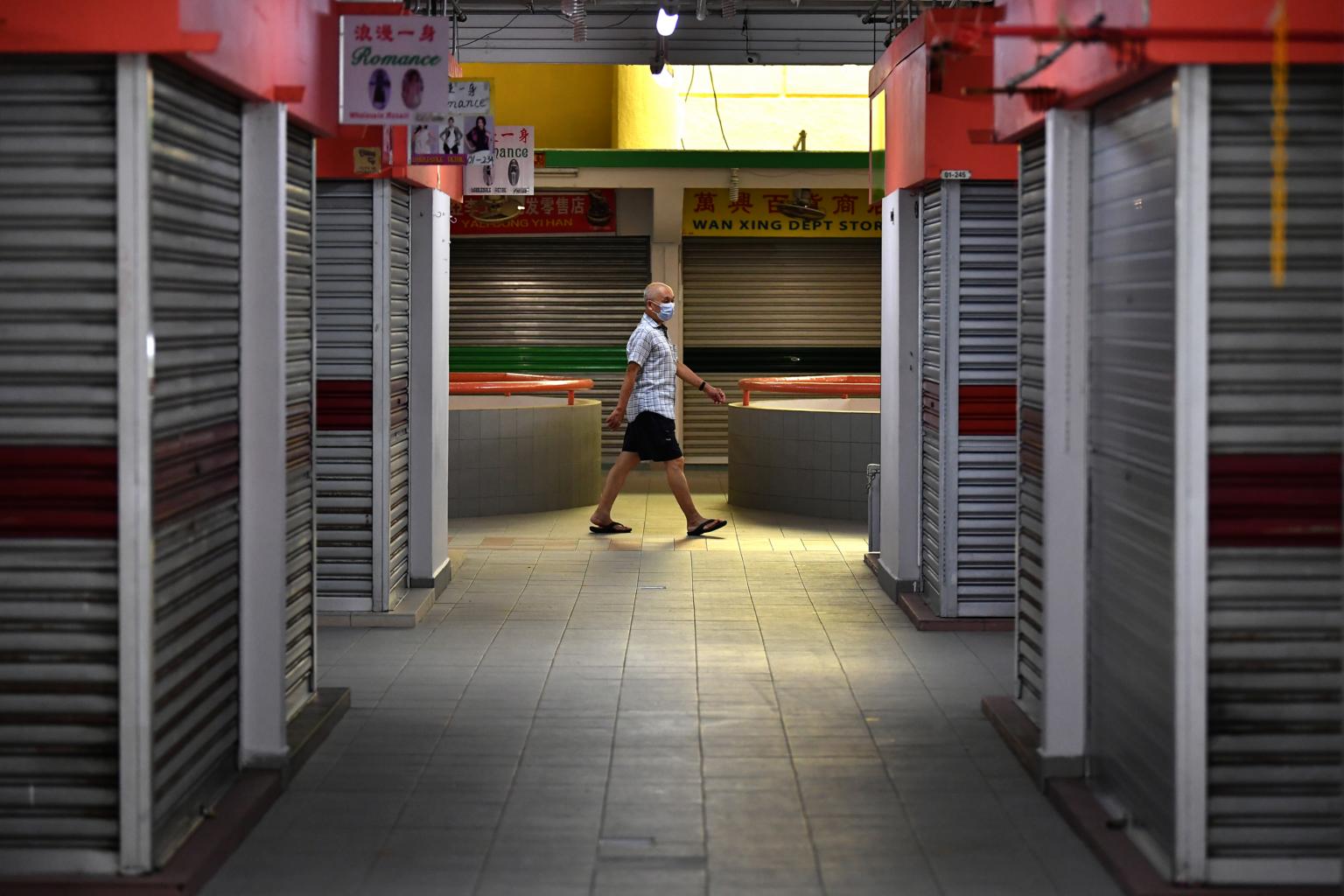$900 million given to landlords under rental relief framework
Sign up now: Get ST's newsletters delivered to your inbox

About $900 million in cash grants was given out to eligible property owners under the rental relief framework last year.
ST PHOTO: LIM YAOHUI
Follow topic:
SINGAPORE - As the pandemic swept Singapore and many distressed tenants found themselves struggling to cope with their rentals, a relief framework put in place last year kept many businesses afloat while propping up their landlords.
About $900 million in cash grants was given out to eligible property owners under the rental relief framework last year. Tenants did not need to pay rent for the period covered under the framework. The owners also received $1.8 billion of property tax rebates, the Inland Revenue Authority of Singapore told The Straits Times.
In addition, 115,990 notices of cash grant were issued to property owners with tenants who were eligible for rental relief.
While the scope of assistance may have supported many commercial and industrial tenants, which range from retail shops and services to offices and industrial outfits, some businesses noted that they faced additional challenges as well.
As a result, businesses and individuals filed more than 8,400 notifications for relief to the Ministry of Law last year under the Covid-19 (Temporary Measures) Act, as they were unable to fulfil contractual obligations amid the pandemic.
Of the 8,428 notifications for relief served last year, 3,005 involved leases and licenses of non-residential property, according to MinLaw.
Some 1,869 applicants sought to have their cases heard by an assessor because there was a dispute. Of these, 769 were applications relating to leases.
"We were heartened to see that of the notifications for relief filed, the majority did not require an assessor to make a determination. We also saw parties who originally applied for a determination but were subsequently able to negotiate and reach an agreement by themselves," a MinLaw spokesperson said. The relief period expired on Nov 19 last year.
The reliefs were wide-ranging and protected businesses from legal and enforcement actions or from their goods from being repossessed and leases from being terminated, among other things.
Under the rental relief framework, which provides direct rental waivers, 3,214 applications for assessment were filed as at the end of last year. Of that number, 2,123 applications were filed to assess tenants' eligibility for rental relief; 720 for landlord's assessment for financial hardship, and 371 to compute rental waiver, MinLaw said.
Eligible tenants and sub-tenants in the food and beverage and commercial sector could get up to four months of rent waived - two months each from the Government and the landlord. Those in the office and industrial sector could will get up to two months of rent waived.
The additional rent waivers were to be applied from April through July last year for small and medium-sized enterprises (SMEs)in commercial properties and April through May for those in industrial/office properties, as long as their leases were in force on April 1.
Nearly 260,000 SMEs employing more than two million workers stood to benefit from these measures, as many were hit hard by the pandemic.
If not for the rental relief framework and other measures, the downturn would have been far worst, Mr Kurt Wee, president of the Association of Small and Medium Enterprises (Asme), said.
"Many more jobs would have been lost, many more shops would have closed, and it would have resulted in the real estate sector having an even bigger shift downwards. The downward cycle that the rental relief framework and various schemes arrested is extremely critical," he said.
But some argue that the relief application numbers don't tell the whole story.
"Many SMEs don't want to go through the process of confronting their landlord for fear of making things worse. And they may have to pay legal fees as well. Even though the law says don't pay for some months, some landlords would threaten legal proceedings to ensure rent continues to be paid," Mr Ang Yuit, founder and managing director of digital agency Inginim, said.
"The law says don't pay, but many end up paying," Mr Ang said.
Mr Ang, who is also ASME's vice-president of strategies, development and digitalisation, added that many industrial tenants only received the bulk of their rental relief in January this year.
"Some landlords would claim that they needed to get clarification on how much in rent relief IRAS is giving them before they give relief to tenants. In many cases, the industrial tenants would get 0.3 months relief in April or May, but the remaining 0.7 months plus 1 month rent relief was given only last month," he said.
"Many smaller landlords were more proactive in giving relief. The bigger landlords would cite legal reasons for not extending relief quickly," he added.

